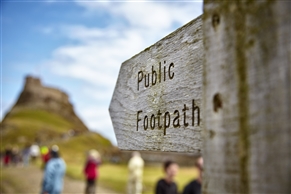7 street games from the 80s and 90s you may have played as NSPCC research reveals parents think outdoor play is important after lockdown
Tracker, British Bulldog and extremely contentious games of Kerby were all popular street games of previous decades.
Scroll down to take our poll
With fewer cars on the road and more families spending time outside, children were often more able to roam their local neighbourhoods to play with friends.
Games of hopscotch, stick in the mud, elastics and skipping were also all very popular past-times, played on street corners and in cul-de-sacs across the county.
But more and more outside play could be back on the cards this summer after months of lockdown, as the NSPCC says parents in Kent believe it could be key to boosting their children's mental health after the pandemic.
Research it has carried out ahead of Childhood Day, which takes place on June 11, reveals after a year of isolated play often reliant on screens, games consoles, indoor toys and arts and crafts, families are itching to get their offspring outdoors to play among friends and family during the better weather.
NSPCC’s CEO Peter Wanless said: “We know the last year has been incredibly challenging for families and many children have missed out on the opportunity to play and really enjoy their childhood. Lots of children have felt lonely and isolated and have longed to be reunited with their friends and family again.
“After the year we’ve just experienced, we could all do with a bit more play and the research we are releasing today shows just how important it will be for families this summer."
Alongside bat and ball games, would you re-ignite some old street-based games with friends and family this summer? We've come up with 7 once popular playground pastimes you could try:
1.Tracker
Often also known as Tracking this was an excellent and elaborate game of hide and seek if you played in streets surrounded by alleyways and side entrances.
One team are the trackers and the other runners and it is the job of the trackers to hunt down each member of the running team who are hiding within an agreed boundary. When a runner is found they are out of the game, which ends when all team members have been discovered.
A smaller version with one seeker and the rest hiders was often called Block 1, 2, 3.
2. Kick the can
A relation of Tag or Capture the Flag, this game is played with a kickable object - most often a can - which is placed in an open space before the majority of players go off to hide. It is then the job of the person, or team who is 'it' to find the hiding players while also guarding the balanced can.
Players who have been found are held together as a group in 'jail' but any player not caught by being touched and tagged, who is able to go and 'kick the can' can release players who have been captured.
3. Kerby
Perhaps played during a time when there were fewer cars on the road, Kerby requires two players to stand on opposite sides of the road with the aim of throwing their ball at the opposing kerb. A basketball or football worked best - but those with exceptional aim often fancied their chances with a tennis ball.
Points were awarded for a direct kerb hit which also entitled the winning player to move to the middle of the road and make a second attempt from a closer distance. The winner of Kerby is the player with the highest points. Tense games were often interrupted with chorus calls of 'CAR' which saw tournaments abandoned until motorists had passed.
4. British Bulldog
A popular playground game that spread to streets and neighbourhoods, British Bulldog required a good amount of players to be most successful.
The 'bulldog' stood in the middle of the playing area with all remaining players standing at one end of the street or playing field with the aim of running to the other without getting caught by the bulldog. When players are caught, they became the bulldog themselves and the last player successfully free was declared the bulldog in the next game. Octopus was a similar version of the British Bulldog game where you would link arms with your capturer to then gather further players.
Characterised by its physical nature, the game was banned by some primary schools in the 80s and 90s reportedly after injuries to participants. Later versions consequently emerged with non-contact or tag style tapping to capture players.
5. Stuck in the mud
A somewhat more involved game of Tag, most of us are likely to have played Stuck in the Mud at some point during our primary school life. The player who is 'on' must tap and tag the other players who are then stuck in the mud. Stuck players have to stand still with their feet wide apart, until another player frees them by crawling through their legs.
6. Hopscotch
Hopscotch courts appear among playground markings in schools today, but the game was often most played with a discarded piece of chalk on a street pavement.
After drawing out the numbered 'court', players used an object, often called a magic bean, to throw onto one of the numbered squares. The player would then hop through the course to collect their counter which was often an old stone, coin or the chalk which had been used to draw the markings.
Single squares required a hop on one foot and adjacent squares a jump with a foot in each square. Often players would go up the course, missing their marked square completely and come down, collecting their marker on the way back.
If games wanted to declare an actual winner, this could be done by landing the magic bean onto every number and making clean runs of the court without landing on lines or falling off balance.
7. Elastics and skipping ropes
Rope games or those using long loops of elastic were often popular ways groups of children would come together outside. The jumping games usually accompanied songs or rhymes and children could jump in and out of skipping games with many challenges to see how many could synchronise skip at once.
Elastics, a popular craze of the 80s and early 90s, required an enormous elastic band, which was places around the ankles of two players who were the anchors.
Each player then had to successfully jump between and onto the elastics, often to the time of a song, as the band was raised in height from ankles to the calf and then knees of the anchors. Traditional rhymes often went 'England, Ireland, Scotland, Wales… inside, outside, inside, scales'. Pairs of tights or smaller bands tied together were both fashioned as the elastic in times of need.
Join Childhood Day
Sky is teaming up with the NSPCC this month to support Childhood Day on June 11.
Fundraising packs have been created to encourage people to organise play activities for Childhood Day, in the hope of encouraging more people to down tools in favour of playing. Virgin Radio’s Chris Evans Breakfast Show with Sky is also dedicating a fortnight to showing how important both fun and play are in how children explore the world.
To find out more about the event click here.




